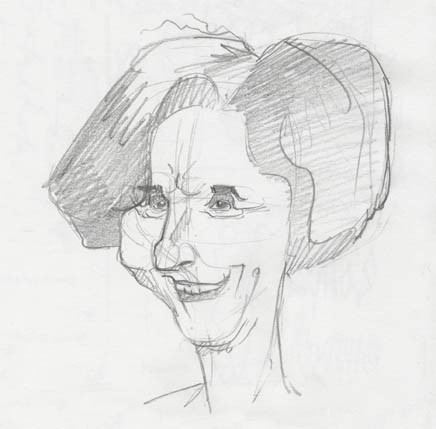$900K Later, Judy’s Back in the Classroom
One year after being forced to resign from her position as university president, Judith Woodsworth has made an unlikely return to Concordia as a professor, despite having been compensated over $169,573 in “administrative leave pay” to help her get back on her feet.
On Dec. 22, 2010 Woodsworth left the university at the urging of the Board of Governors halfway through her term in office, receiving a $747,045 severance package that stands out as one of the hallmarks of a governance crisis that continues to plague the university.
Woodsworth’s story is not a particularly new one, however. Her predecessor, Claude Lajeunesse, was dismissed in 2007. Together, the severance packages they received amount to almost $2 million.
Now Woodsworth has taken up a teaching position in the Department of French Studies, teaching French translation.
“It bewilders me why she would want to come back [to Concordia] to teach, or why the university would hire her, but I imagine it is part of whatever settlement they had,” said Concordia Student Union President Lex Gill. The severance package and administrative leave pay saw Woodsworth leave with $916,618 in total.
In an interview with The Link last November, Concordia VP Services and Secretary General Bram Freedman explained administrative leave as “almost like a little sabbatical,” wherein academics that are temporarily senior administrators are “given six months to brush up on their academic areas because they’ve been out of [academia] for five or 10 years.”
Woodsworth was a faculty member and professor at Concordia for seventeen years between 1980 and 1997. After leaving Concordia, she held the position of VP Academic at Mount Saint Vincent University in Halifax, and later was president at Laurentian University in Sudbury.
Woodsworth returned to Concordia to hold an administrative position as president of the university in 2009, twelve years after leaving Concordia as a professor.
According to Concordia’s Policy Concerning the Remuneration of Senior Administrators, the benefit of academic leave should only apply at the conclusion of one’s term in office.
The policy also states, “Senior administrators who are not professors are not eligible for administrative leaves and will receive appropriate compensation reflected in their salaries.”
Though Concordia did not hire Woodsworth as an academic in 2009, and her term was never completed, Sylvain-Jacques Desjardins, senior media relations advisor for Concordia, claims that there is nothing unusual about her situation.
“Like all academic administrators [Woodsworth] received academic appointment when she was re-hired as president in 2009, so it’s really business as usual,” said Desjardins.
Freedman refused multiple requests for comment on this issue.
Last week Education Minister Line Beauchamp made comment on the case of Woodsworth’s return to Concordia, demanding an explanation from the university.
Desjardins assures that these requests have been met.
“Senior officials at Concordia were in touch regularly with Line Beauchamp’s office on Jan. 31,” said Desjardins.
“They answered the questions concerning the subject of Dr. Woodsworth’s return, and the lines of communication between Concordia and the Ministère de l’Éducation, du Loisir et du Sport remains open.”
However, Gill doesn’t buy Beauchamp’s newfound concerns for Concordia’s governance problems. She believes that Beauchamp is simply “latching on to the spectacle of Judith Woodsworth,” while the education department mismanages millions of dollars.
“The reality is that no university should have been able to give anyone this deal that Woodsworth got when she left,” said Gill. “Now the ministry is stepping in a year later to ask questions? That’s not really acceptable.”







